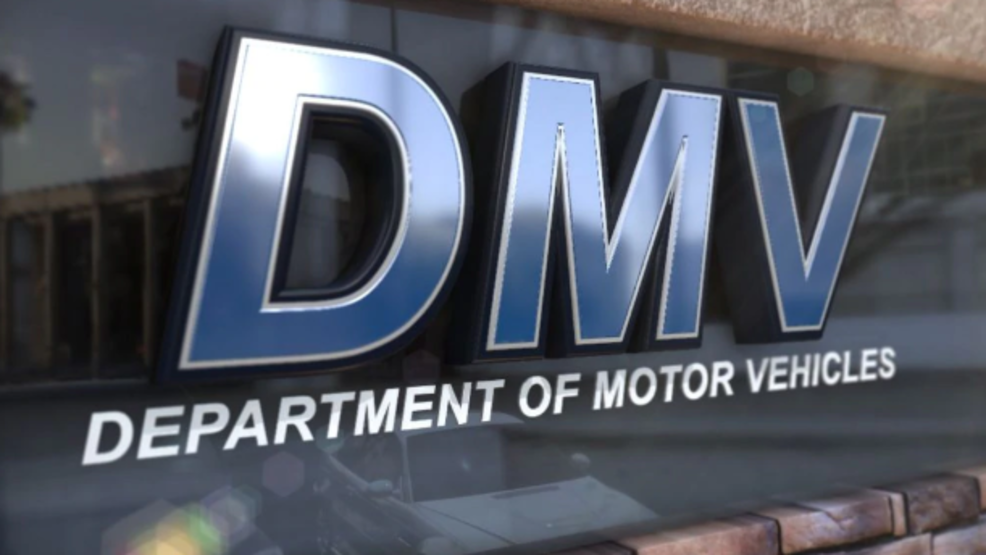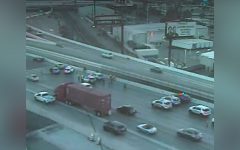
DMV Announces Traffic Law Updates for the New Year
By TheNevadaGlobeStaff, December 28, 2022 3:44 am
NEVADA – The Nevada Department of Motor Vehicles (DMV) is informing Nevadans about new traffic regulations that will go into effect on January 1st.
An update on the criminalization process, or more specifically the decriminalization of traffic infractions, as well as new regulations for classic vehicle insurance and registration are all present.
As of January 1, 2023, certain misdemeanor traffic violations will no longer be considered crimes under Assembly Bill 116 (AB116).
It covers infractions as minor as speeding, using a cell phone, and failing to buckle up. Serious violations like DUI and unlicensed driving are still crimes.
Only a few small adjustments to traffic stop procedures are made under AB 116. According to current laws, officers may continue to stop, search, and arrest drivers as necessary. However, rather than treating the citation as a criminal offense, courts may instead treat it as a civil infraction.
A driver who receives a citation is currently subject to a fine and, in the event of a conviction, to jail time. A bench warrant, potential arrest, and license suspension are all automatic consequences for a driver who doesn’t show up for court or doesn’t pay a fine.
Drivers now have up to 90 days to reply to a citation under the new legislation. If the court determines that the driver violated the law, the motorist will only face a civil penalty of up to $500 plus administrative fees and assessments. The local municipal or county has up to ten years to collect unpaid debts. For unpaid debts, courts may impose a driver’s license suspension.
Beginning on January 1, 2023, all outstanding bench warrants for crimes that have been decriminalized will be revoked. According to separate legislation, driver’s license suspensions for unpaid fines, administrative assessments, fees, or restitution were removed as of October 1, 2022. (SB 219). Other license suspensions and revocations for DUI and traffic violations are still in effect while the motorist is going through the reinstatement process.
Drivers who have received a citation may contest it in court. Courts may substitute community work for a monetary fine, decrease penalties, or mandate that offenders complete traffic school. When a driver is found to have committed a civil violation, the courts will inform the DMV. The violation will be recorded in the driver history file. There are still points in the DMV system. A driver’s license suspension may result from numerous civil violations.
Numerous traffic infractions are listed in AB 116 as continuing to be criminal offences.
Unlicensed driving, leaving the scene of an accident, failing to stop and render aid, failing to stop for an emergency vehicle, flagger violations, tampering with a traffic control device or sign, and any traffic offense committed while the driver is under the influence of alcohol or a controlled substance are just a few examples.
For the precise steps to take and the specifics of each case, drivers should consult the court with jurisdiction over their citation. Visit the pages listed below on nvcourts.gov:
Municipal Courts Justice Courts
Pay the Fine
For further information on these new legislation, please refer to the text of AB 116 (which is accessible here), and if necessary, seek legal counsel. The steps that law enforcement and the courts must take are outlined in Sections 24 to 36.7.
The owners of vehicles with Classic Vehicle, Classic Rod, or Old Timer license plates will need to get classic or antique vehicle insurance starting in 2023, according to new regulations for this insurance.
Owners who don’t comply with the standards will have to get a new form of license plate and, if necessary, a smog check.
You must provide evidence that the car is insured by Nevada liability insurance that is expressly designed for classic or antique vehicles and fulfills the state’s minimum liability coverage on the Declarations page from your insurance policy. This must be sent in when your license is next up for renewal or when you initially get your plates.
The car cannot be used for any kind of business activity, for more than 5,000 kilometers a year, or for regular transportation.
The car may be used for club events, shows, tours, parades, or other similar activities, as well as for maintenance.
If the owner also completes an Odometer Certification for Emissions Exemption Form, vehicles that meet these standards are exempt from emissions testing (EC 018).
You can renew your license in person, by mail, or by fax at (775) 684-4797. To renew by mail or fax, complete a Payment Authorization Form (ADM 205). Original license plates must be acquired personally.
You must obtain an alternative plate style and, if necessary, an emissions inspection if you don’t meet these requirements.
Regardless of location or whether they are subject to emissions testing, these regulations apply to all cars carrying Classic Vehicle, Classic Rod, or Old Timer plates.
These new laws were passed by the Nevada Legislature in 2021. Check out Assembly Bill 349.
Visit https://dmv.nv.gov/platesclassic.htm for further details.
Credits: 2 News
Copyright 2022 775 Times, NV Globe. All rights reserved.
- Nevada Dems Sell Out Public Safety, Vote to Defund ICE and Side With Radical Left - February 5, 2026
- Metro Officers ID’d in Deadly Standoff Case - February 5, 2026
- Nevada Dems Rob the Tip Jar: Titus, Lee, Horsford Vote to Tax Your Hard Work - February 5, 2026




